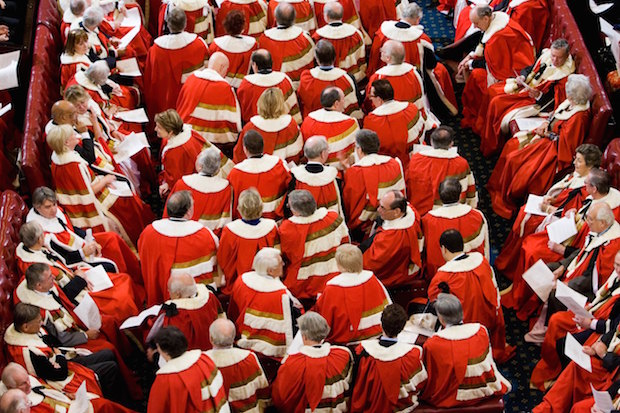Lord Sewel has announced he has resigned from the House of Lords this morning. 48 hours after the first stories and videos about his alleged use of drugs and prostitutes appeared in the Sun, the former deputy speaker has released this statement:
‘I have today written to the Clerk of the Parliaments terminating my membership of the House of Lords. The question of whether my behaviour breached the Code of Conduct is important, but essentially technical. The bigger questions are whether my behaviour is compatible with membership of the House of Lords and whether my continued membership would damage and undermine public confidence in the House of Lords.
‘I believe the answer to both these questions means that I can best serve the House by leaving it. As a subordinate, second chamber the House of Lords is an effective, vital but undervalued part of our political system. I hope my decision will limit and help repair the damage I have done to an institution I hold dear. Finally, I want to apologise for the pain and embarrassment I have caused.’
Sewel is the first peer to quit under new rules after publicly damaging the reputation of the Lords. This ability to resign is something new: the 2014 House of Lords Reform Act gave peers the ability to retire yet still keep their title. One of the first examples was Lord Ashcroft, the Tory pollster, who took advantage of the new rules and retired from the Lords in March 2015.
It appears that Sewel was originally not intending on leaving the Lords, given that he decided yesterday evening to take a break until investigations were complete. But for those concerned about the reputational damage for the Upper Chamber,, it is a resignation gladly received. Lord Jonathan Hill, Britain’s EU commissioner who was responsible for drawing up the new guidelines on conduct, told the Today programme that Sewel’s resignation was ‘better late than never’ and said it was ‘the right thing to do … his position wasn’t tenable and I’m glad for his change of heart.’
This scandal will undoubtedly lead to questions about the point and purpose of the House of Lords — whether it is too big, too expensive and too unaccountable. On the first two points, Hill pointed out that ‘30 peers have taken advantage’ of ability to retire and the cost of the Lords has been reduced by 15 per cent over the past five years:
‘The House of Lords is smaller now than it was around about the year 2000, when the last set of reforms came in. I think also it’s the case that the key number to look at is how many peers actually attend than how many are entitled to attend, as there are an awful lot of peers who don’t actually go along to the House of the Lords.’
And despite the fact it is not an elected body, Hill argued that it still does its job very well:
‘The key question you should ask yourself is: does the House of Lords do the job that people need it to do, as an effective revising chamber, as an effective second chamber? I think despite these things, it still does.’
An important precedent has been set today: if you are a peer who brings the Lords into serious disrepute, you will be pushed towards resignation. Peers can now be judged in a much closer way to MPs than in the past. They still can’t face the humiliation of a de-selection by their parties or a by-election as MPs do. But if the second chamber is to continue well into the 21st century, this was a necessary step.






Comments